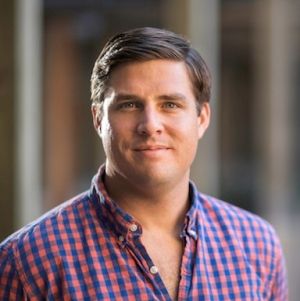Research Focus
I am a former middle school teacher and a current developmental psychologist interested in adolescent educational inequality, health, and well-being. My research examines how adolescents’ beliefs can shape their motivation, behavior, and affect regulation. To do this I conduct randomized experiments that change adolescents’ beliefs during key moments of vulnerability, with the goal of improving trajectories of development and narrowing group-based inequalities. Much of my research has focused on the transition to high school and to college, and has focused on beliefs about personal traits (e.g. growth mindset), belonging, and self-transcendent purpose in life. My more recent research seeks to understand how institutional contexts, such as schools, can provide support or affordances for adolescents’ beliefs, or not, and affect the circumstances under which small changes in beliefs translate into differences in outcomes over time. This focus on developmental contexts has motivated stronger intersections with sociological theories and with statistical approaches for understanding how psychological factors have different effects in different contexts—that is, treatment effect heterogeneity. In addition, I am interested in how the field might develop new, collaborative infrastructures for field experimentation that can make it easier for scientists to pay attention to contextual factors that constrain or enhance individuals’ agency. Finally, I am collaborating on the development of novel, machine-learning tools for understanding heterogeneous effects.
My plans for the fellowship period
This fellowship has allowed us to re-imagine what a collaborative research lab conducting large-scale field experiments should look like, from an equity perspective. It has allowed us to ask critical questions, such as: who benefits from most research grants? Does research activity broaden participation in science? And how can research be designed from the ground up to prepare more junior scholars to diversify academia? To answer these questions, we have focused on perhaps the most consequential part of the PhD pipeline: the post-baccalaureate years. 100% of the support from this fellowship has been dedicated to launching a competitive post-bacc fellowship that provides a competitive wage and a high-quality training and mentoring experience to a yearly cohort of post-bacc fellows who carry out mission-critical research tasks in a multi-PI research institute at UT Austin. After two years in our program, we expect our fellows to be highly competitive on the PhD market. Fellows in our program come from many groups that are under-represented in academia and whose perspectives are needed to broaden the aperture of the social and behavioral science PhD programs they will contribute to in the future. We hope to build the post-bacc fellowship into a model for universities to have intentionality about and investment in the representation of members of historically marginalized groups in science, by focusing on a segment of the pipeline that is often overlooked.
How will my work change children’s and youth’s lives?
We are focused on three big questions in the coming years. First, we want to know how to change educational contexts – such as classroom cultures – to make them more supportive of young people’s trajectories. If a student holds more of a growth mindset, for example, then how can their teacher support that belief through their policies and practices, and what can be done to influence that teacher’s behaviors? To that end, we have launched the Global Mindset Initiative, which will focus on creating a community of researchers working on methods for experimentally changing classroom cultures and reducing inequalities. Second, we want to make it easier, and far more inclusive, for researchers interested in questions of classroom culture and climate to conduct experimental research. This will require shared research infrastructure, so that researchers do not have to recruit new, large, panels of schools for each individual study. Accomplishing this will require coalitions of researchers and public and private funders, but it has to be done if we want to have a broader impact on a shorter time scale. Third, we want to dramatically increase the number and proportion of junior scholars from under-represented groups who have access to the kinds of high-quality scientific training experiences that will help them to transition into PhD programs or into industry. To this end we are hoping to create a lasting infrastructure with dedicated resources for training and mentoring of promising junior scholars from under-represented groups.


